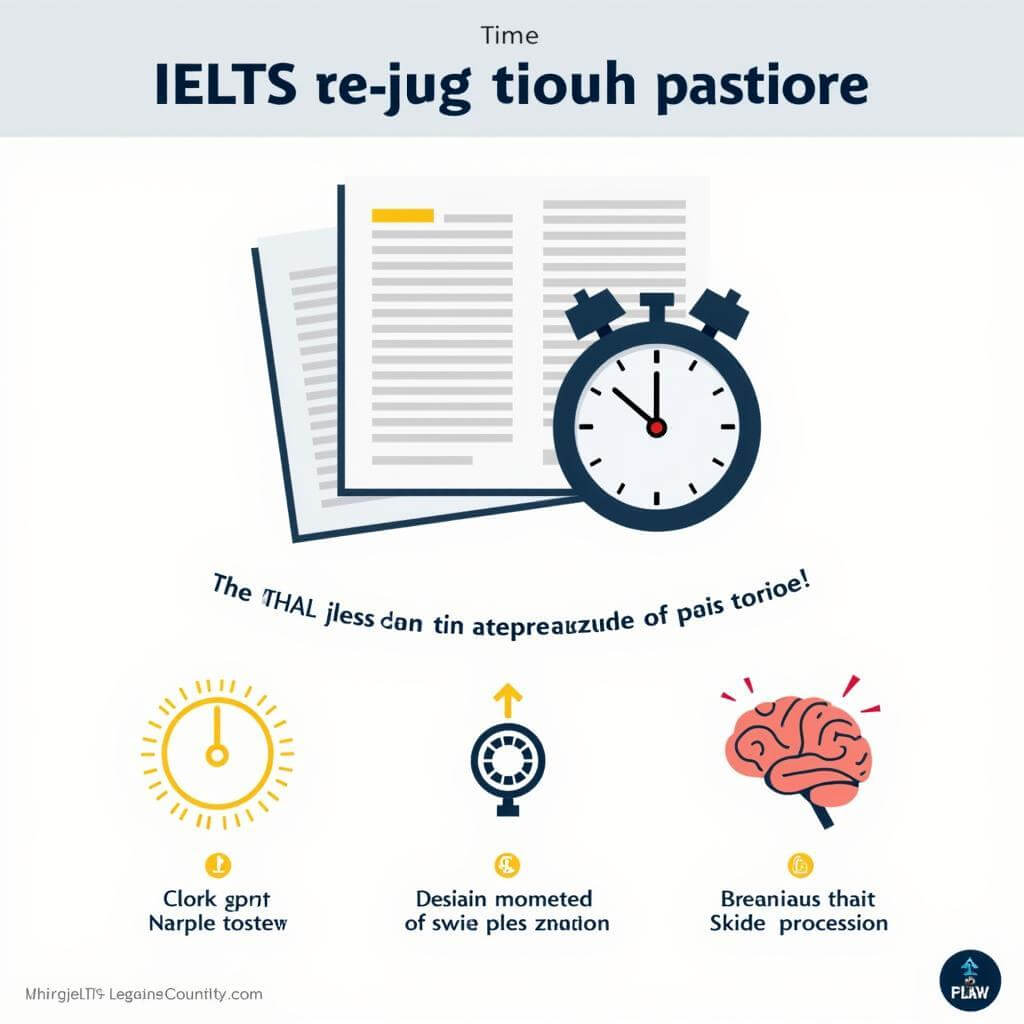Reading quickly while maintaining comprehension is a crucial skill for IELTS success. This article will explore effective techniques to enhance your reading speed and understanding, particularly beneficial for the IELTS Reading section. By implementing these strategies, you’ll be better equipped to tackle the time constraints and complex texts in the exam.
Understanding the Importance of Speed Reading in IELTS
The IELTS Reading section presents a significant challenge: processing a large amount of information in a limited time. Developing speed reading skills is not just about reading faster; it’s about optimizing your reading efficiency to improve comprehension and time management.

Effective Techniques for Faster Reading Comprehension
1. Skimming and Scanning
Skimming and scanning are essential techniques for handling dense reading material under pressure.
- Skimming: Quickly glance over the text to get a general idea of its content.
- Scanning: Search for specific information or keywords within the text.
Practice these techniques with various types of texts to improve your ability to quickly identify main ideas and locate specific details.
2. Expanding Your Vocabulary
A robust vocabulary is crucial for faster comprehension. The more words you recognize instantly, the less time you’ll spend decoding unfamiliar terms.
- Create a word bank of common IELTS vocabulary
- Use flashcards or vocabulary apps for daily practice
- Read diverse materials to expose yourself to a wide range of words in context
3. Chunking Text
Instead of reading word by word, train your eyes to take in groups of words or “chunks” at a time. This technique can significantly increase your reading speed.
“Chunking text is like taking bigger bites of information. It allows you to process more content in less time, which is crucial for IELTS success,” says Dr. Emma Thompson, IELTS expert and speed reading coach.
4. Using a Pacer
A pacer (like your finger or a pen) can guide your eyes across the page more quickly and help maintain focus. Move your pacer slightly faster than your comfortable reading speed to challenge yourself.
5. Practicing Active Reading
Engage with the text actively to improve comprehension while maintaining speed:
- Predict what might come next in the passage
- Ask questions about the content as you read
- Make mental summaries of each paragraph
Advanced Strategies for Rapid Comprehension
Developing Mental Flexibility
To improve comprehension of scientific texts and other complex materials, cultivate mental flexibility:
- Practice switching between different types of texts quickly
- Challenge yourself with unfamiliar topics
- Attempt to understand context even when encountering unknown words
Improving Focus and Concentration
Enhance your ability to concentrate for extended periods:
- Practice mindfulness or meditation to improve focus
- Create a distraction-free reading environment
- Set time goals for reading passages and gradually decrease the time allowed
Tailoring Your Practice for IELTS
To make your speed reading practice more effective for IELTS:
- Use official IELTS practice materials or similar academic texts
- Time yourself strictly, mimicking exam conditions
- Regularly assess your comprehension with practice questions
- Focus on improving speed without sacrificing comprehension
“The key to IELTS reading success is finding the balance between speed and understanding. It’s not just about reading fast, but reading smart,” advises Mark Johnson, IELTS preparation specialist.
Incorporating Technology in Your Practice
Utilize speed reading apps and online tools to track your progress and provide structured practice sessions. Many of these tools offer customizable exercises that can be tailored to IELTS-style texts.
Overcoming Common Challenges
Dealing with Complex Vocabulary
When encountering difficult words:
- Don’t dwell on them; try to understand from context
- Make a quick note to look up later if necessary
- Focus on the overall meaning of the sentence or paragraph
Managing Time Pressure
To handle the stress of time constraints:
- Practice with a timer regularly
- Learn to allocate time effectively between passages
- Develop a personal strategy for approaching different question types
Conclusion
Mastering the art of reading for faster comprehension is a game-changer for IELTS success. By consistently applying these techniques and strategies, you’ll enhance your ability to quickly process and understand complex texts. Remember, improvement comes with regular practice and patience. Keep refining your skills, and you’ll see significant progress in your IELTS reading performance.
For more tips on how to tackle difficult reading passages and ways to boost IELTS reading comprehension skills, explore our other resources. With dedication and the right approach, you can transform your reading abilities and approach the IELTS exam with confidence.
FAQ
How long does it take to significantly improve reading speed?
Improvement varies, but with consistent practice, many students see noticeable progress in 4-6 weeks. Dedicate at least 15-20 minutes daily to speed reading exercises for optimal results.
Can speed reading techniques be applied to all types of IELTS reading passages?
Yes, but flexibility is key. Different passages may require adjusting your approach. Scientific texts might need more careful reading, while narrative passages could allow for faster skimming.
Will speed reading affect my comprehension negatively?
Initially, comprehension might dip as you increase speed. However, with practice, your brain adapts, allowing you to maintain high comprehension levels at increased speeds.
How can I measure my reading speed improvement?
Use timed reading exercises with comprehension questions. Track your words per minute (WPM) and comprehension accuracy over time to gauge improvement.
Is it better to read IELTS passages quickly once or slowly twice?
Generally, it’s more effective to read quickly once and then refer back to specific sections for answers. This approach saves time and aligns with IELTS time constraints.
Can I use speed reading techniques during the actual IELTS test?
Absolutely. The techniques you practice become natural reading habits, which you can and should apply during the test to manage time effectively.